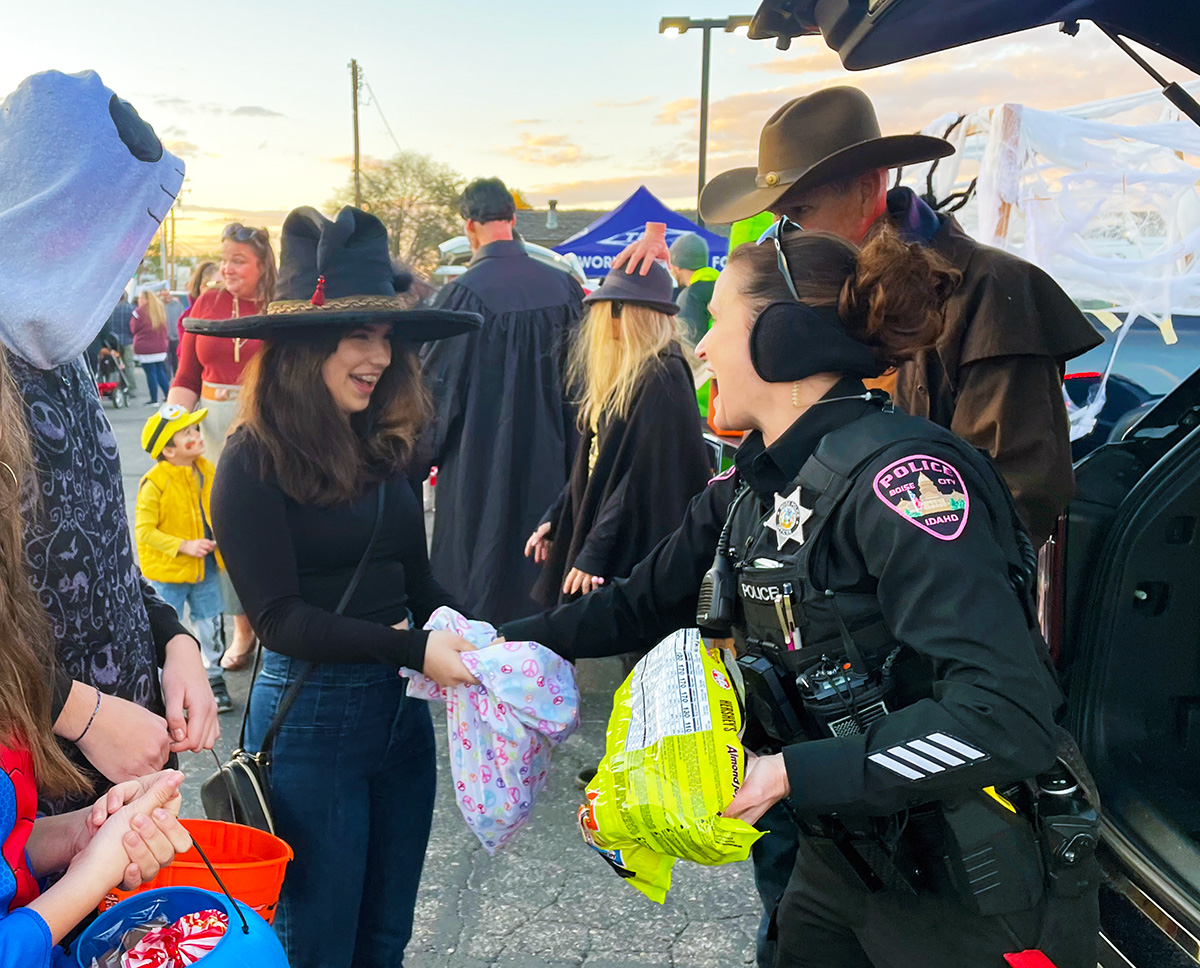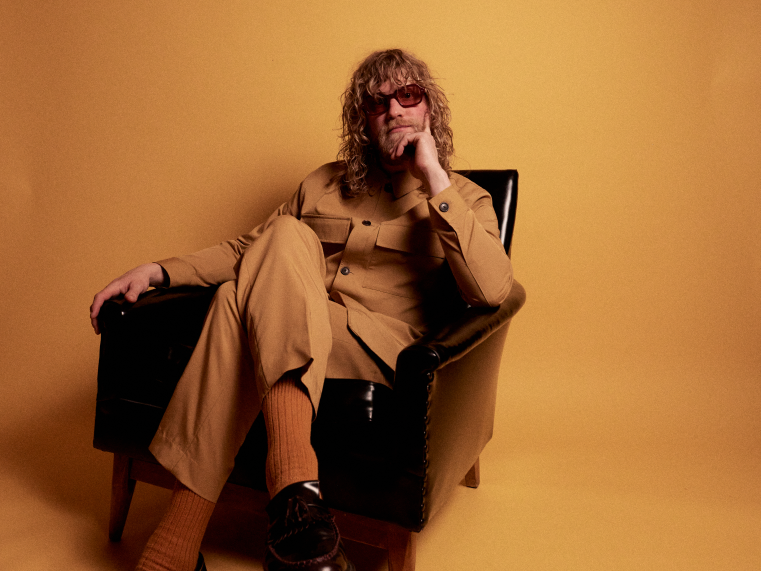







Along with immersing himself in a songwriting approach that involved unflinching examination of “some very dark and negative moments in my life,” Stone shaped the sound and feel of Radius by pushing himself to “get past the boundaries of what I felt comfortable with, so that I could progress into a whole new level of creativity.” Despite that sometimes-daunting process, Radius wholly reveals Stone’s easy grace in blending everything from edgy soul-pop and earthy folk-rock to throwback R&B and Parliament-inspired funk.
Radius first began to come to life back in the fall of 2013, when Stone headed to Sweden to join in a writing session with Tingsek. “His musicality is so outside-the-box, and it really stretched me as an artist,” says Stone, who’d tapped Tingsek as one of his opening acts for an 85-date headlining tour in 2012. “We just kept on throwing a wrench into the works and tried to create something that’s the complete antithesis of what you’d expect from pop music.” After recording the bulk of the album in Sweden, Stone rounded out Radius’s production at his own studio in the woods of northeast Washington and in L.A.-based sessions with producers like Benny Cassette (who’s previously worked with Kanye West) and Malay (a co-producer on Frank Ocean’s channel ORANGE).
~Like many of his own musical heroes—Stevie Wonder chief among them—Stone pulls off the near-magical feat of channeling a weight-of-the-world sensitivity into his songs while still radiating hope and promise. And though that depth of consciousness feels transmitted from a more golden era, Radius continually hones in on issues both timeless and of-the-moment, with Stone’s breezily poetic lyrics touching on topics ranging from rampant materialism (on the tenderly string-accented, harmony-soaked “American Privilege”) and the toxic takeover of technology in art (on the gutsy and groove-heavy “Fake Future”). “That song’s mainly about how technology’s infiltrating music in a way that’s making it less and less human and taking all the heart out of it,” Stone says of the latter track, a soul-pop powerhouse peppered with playfully cutting lines like “Rock stars pushing buttons/Few actually play/City wasn’t ever built on lights and Special K.” And as evidenced by Radius’s lush yet raw sonic landscape—wherein the only hint of synth comes from a Moog analog synthesizer—Stone stayed true to his pledge to “keep fakeness completely out of this record” and rely entirely on live instrumentation.
Equally introspective and outwardly searching, Radius also finds Stone exploring intensely personal matters, such as depression on the stark and lovely, acoustic-guitar-woven ballad “Circle” (“That one was written at a pretty dark time for me,” Stone points out. “It’s about how depression can put you into a kind of circle, where you’re just trying to find a way out but it keeps on leading you back inside”). Showing his skill at crafting a killer love song as well, Stone looks at heartbreak and regret on the aching, electric-piano-infused “I Know That I Wasn’t Right,” slips into hopeless romanticism on the dreamy R&B pastiche “Barbwire,” and unleashes some starry-eyed affection on the dancefloor-ready “Symmetrical” (a sample lyric: “The angle of your spine/Is sending lightning bolts down mine/When those molecules combine/It’s astronomically divine”). And in tracks like the ultra-catchy album-opener “Perfect World” and the fiery, horn-laced “Freedom,” Radius unfolds into epically joyful anthems that show the full range and power of Stone’s vocals.
Stone started working those vocals as a kid, thanks largely to his parents’ influence. “My father was a minister so I spent about half my childhood in church, watching my mom and dad sing together and lead the congregation in song,” he recalls. By the time he was 11 he’d picked up a guitar and written his first song, and soon began self-recording demo tapes to pass along to classmates. Although Stone enrolled in bible college after high school, he quickly dropped out to move to Seattle and kickstart his music career. “I had an ’87 Buick and I’d drive up and down the west coast, playing any gig I could get just to try to put my music out there,” he says.
At age 22, Stone self-released his debut album, 2010’s Last To Speak. But it was his self-titled follow-up (on which he joined forces with former Miles Davis keyboardist Deron Johnson) that ended up earning him serious recognition. Along with entering the top five on iTunes’ R&B/Soul chart after its digital release, Allen Stone prompted him to score appearances on such late-night talk shows like Conan and grace the pages of publications like the New York Times (whose chief popular-music critic Jon Pareles praised Stone for possessing “a tenor voice with the eagerness and frisky syncopations of [Stevie] Wonder”). And upon partnering with ATO Records for a physical release of his self-titled album in 2012, Stone soon turned up on the likes of the Late Show with David Letterman and landed a gig as the opening act for soul legend Al Green. In the midst of all the buzz, he also took up a grueling touring schedule, tearing through nearly 600 shows in just two years.
For Stone, all that time onstage went a long way in preparing him for the many creative breakthroughs he’s made on Radius. “I think you really grow as a musician when you’re playing right in front of people, and for me constantly growing and progressing and getting better is really the most important thing,” he says. Ruminating on the emotional undertones of his new album’s title and noting that “the center of me is my heart,” Stone says he also hopes that Radius will ultimately help listeners shed new light on their own struggles. “There’ve been times in my life when records were my saving grace and really helped me to figure out who I am, and I’d love for my music to have that kind of impact on a kid who’s looking for his or her own place in this life,” he says. “Because I absolutely believe that if you’re going to stand at a microphone and say something, you need to recognize that as a privilege. You’ve got to be incredibly careful about it, and really put all your heart into the message that you’re sending out into the world.”





